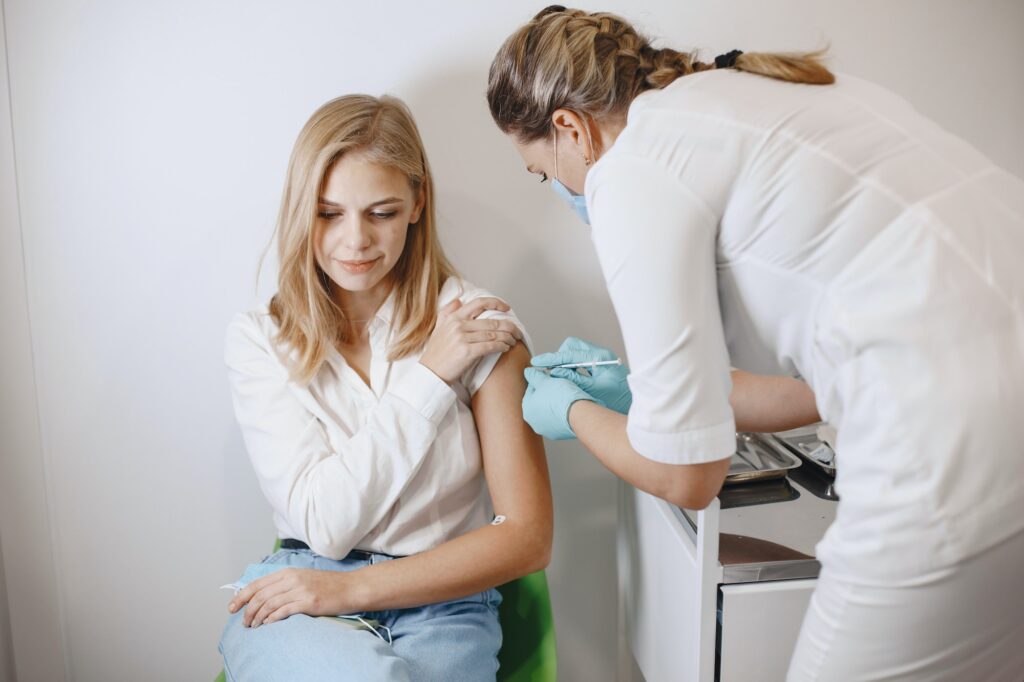Gynecological cancers are among the most common diseases experienced by women. Knowing prevention methods against gynecological cancers is one of the most important pieces of information every woman should be aware of. In this article, we discuss what gynecological cancers are, their risk factors, and how they can be prevented.
What Are Gynecological Cancers?
Gynecological cancer refers to any cancer that begins in a woman’s reproductive organs.
For many years, gynecological cancers were considered cancers that could not be prevented or detected until they were limited to specific treatment options.
Now, with the emergence of modern tests, screenings, and genetic discoveries, doctors have found that early diagnosis is possible, and many types of gynecological cancers can be prevented.
We have compiled the risks, the best prevention methods, and the possible signs and symptoms of gynecological cancers for you and your loved ones.

What Are the Risk Factors?
The following are significant risk factors:
Family History: The strongest known risk factor for ovarian cancer is family history. It is now estimated that one in five ovarian cancer cases is caused by mutations in ovarian cancer predisposition genes like BRCA1 and BRCA2, passed down through generations.
Endometrial cancer also occurs in some families, often alongside Lynch syndrome. Lynch syndrome is a hereditary cancer syndrome associated with an increased risk of endometrial, ovarian, and colon cancer.
Obesity: With increasing obesity rates, there is a significant rise in endometrial cancer. Obesity leads to increased estrogen production and chronic inflammation, which can affect the inner lining of the uterus (endometrium) and result in a higher risk of this cancer.
Age: For most gynecological cancers, a woman’s risk is highest after the age of 60.
HPV: HPV is a sexually transmitted infection with strong links to gynecological cancers. Almost all cases of cervical cancer are caused by HPV, and many types of the disease also cause vaginal and vulvar cancer. However, cervical cancers can largely be prevented with the HPV vaccine.

How Can Gynecological Cancers Be Prevented?
Knowing your gynecological cancer risks is crucial as it involves undergoing recommended tests, screenings, and available preventive vaccines.
Pap Tests: Pap tests, especially when combined with HPV testing, are the most valuable cervical cancer screening tools available. Pap and HPV tests can detect precancerous changes in the cervix before they develop into cancer.
- Women aged 21 to 29 are recommended to undergo Pap tests every three years.
- Women aged 30 and above are recommended to undergo Pap tests every five years in combination with HPV tests (known as co-testing).
- For women over 65 considered low risk, screenings may be stopped.
Healthy Diet and Lifestyle: Maintaining a healthy diet and lifestyle is essential, especially as obesity is a major risk factor for endometrial cancer.
HPV Vaccine: The HPV vaccine is a valuable tool for preventing cervical cancer. A groundbreaking study recently published by the American Academy of Pediatrics observed a 63% reduction in HPV rates among young girls and a 34% reduction among women aged 20 to 24. The HPV vaccine is generally recommended for women and men aged 11 to 26.
What Are the Potential Symptoms of Gynecological Cancers?
Women may notice many symptoms of gynecological cancers, such as abnormal bleeding, pelvic pain, and bloating.
However, these can often indicate other, more benign conditions, so it’s important not to panic. Still, if you feel something, you should report it to your doctor. Below are symptoms that may indicate gynecological cancers:
- Cervical Cancer: Abnormal bleeding (any vaginal bleeding unrelated to your menstrual period), heavier and/or longer menstrual periods, postmenopausal bleeding, pain, and bleeding during intercourse.
- Endometrial Cancer: Abnormal bleeding, postmenopausal bleeding, difficulty or pain urinating, pain during intercourse, pelvic pain, and/or a mass in the pelvic area.
- Ovarian Cancer: Bloating or a feeling of fullness in the lower abdomen; loss of appetite; gas, indigestion, and nausea; frequent urination; abnormal vaginal bleeding.
- Vaginal Cancer: Abnormal bleeding, difficulty urinating, pain during intercourse, pelvic pain, constipation, or a noticeable mass.
- Vulvar Cancer: Persistent itching; changes in vulvar color; bleeding or discharge unrelated to menstruation; palpable nodules, masses, or sores.
Being aware of risk factors, maintaining a healthy lifestyle, undergoing routine tests and screenings, and investigating potential symptoms can help you prevent and detect gynecological cancers.

 EN
EN TR
TR
